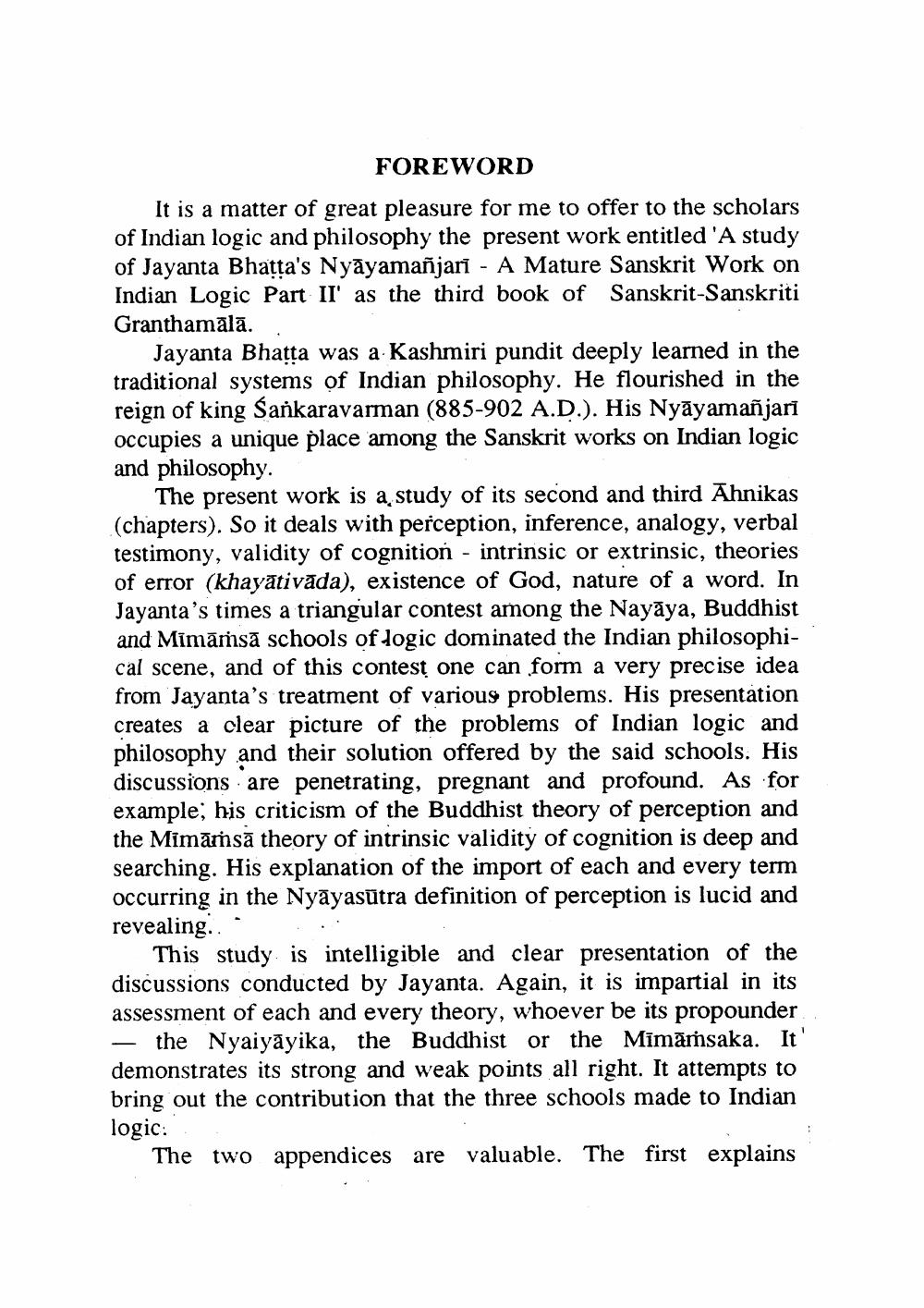Book Title: Indian Logic Part 02 Author(s): Nagin J Shah Publisher: Sanskrit Sanskriti Granthmala View full book textPage 6
________________ FOREWORD It is a matter of great pleasure for me to offer to the scholars of Indian logic and philosophy the present work entitled 'A study of Jayanta Bhatta's Nyāyamañjari - A Mature Sanskrit Work on Indian Logic Part II' as the third book of Sanskrit-Sanskriti Granthamalā. Jayanta Bhatta was a Kashmiri pundit deeply learned in the traditional systems of Indian philosophy. He flourished in the reign of king Sankaravarman (885-902 A.D.). His Nyāyamañjarī occupies a unique place among the Sanskrit works on Indian logic and philosophy. The present work is a study of its second and third Ähnikas (chapters). So it deals with perception, inference, analogy, verbal testimony, validity of cognition - intrinsic or extrinsic, theories of error (khayātivāda), existence of God, nature of a word. In Jayanta's times a triangular contest among the Nayāya, Buddhist and Mīmāṁsā schools of logic dominated the Indian philosophical scene, and of this contest one can form a very precise idea from Jayanta's treatment of various problems. His presentation creates a clear picture of the problems of Indian logic and philosophy and their solution offered by the said schools. His discussions are penetrating, pregnant and profound. As for example; his criticism of the Buddhist theory of perception and the Mimāṁsā theory of intrinsic validity of cognition is deep and searching. His explanation of the import of each and every term occurring in the Nyāyasūtra definition of perception is lucid and revealing.. . This study is intelligible and clear presentation of the discussions conducted by Jayanta. Again, it is impartial in its assessment of each and every theory, whoever be its propounder - the Nyaiyāyika, the Buddhist or the Mīmārsaka. It' demonstrates its strong and weak points all right. It attempts to bring out the contribution that the three schools made to Indian logic: The two appendices are valuable. The first explainsPage Navigation
1 ... 4 5 6 7 8 9 10 11 12 13 14 15 16 17 18 19 20 21 22 23 24 25 26 27 28 29 30 31 32 33 34 35 36 37 38 39 40 41 42 43 44 45 46 47 48 49 50 51 52 53 54 55 56 57 58 59 60 61 62 ... 236
